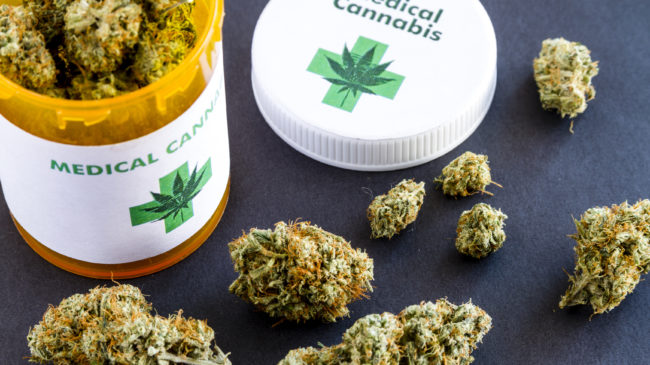South Dakota Measure 26: Medical Marijuana Initiative
Summary
Measure 26 would create a medical marijuana program in South Dakota. Medical marijuana would have to be prescribed by a doctor for a debilitating medical condition, defined as a chronic or debilitating disease or medical condition or its treatment that produces one or more of the following: cachexia or wasting syndrome; severe, debilitating pain; severe nausea; seizures; or severe and persistent muscle spasms, including characteristic of multiple sclerosis. The Department of Health could add additional qualifying conditions if it deems appropriate.
Patients would be allowed to possess a maximum of three ounces of marijuana, and patients registered to cultivate marijuana at home could grow three plants at a minimum, or another amount as prescribed by a physician. The Department of Health will set limits on the number of cannabis products a person may possess and will enact rules for implementing the medical marijuana program within 120 days after the law goes into effect—likely meaning October 29, 2021—and must issue registry identification cards to qualified patients by 20 days after that.
Fiscal Impact
We could not identify any official estimates of fiscal impacts for Measure 26.
Proponents’ Arguments For
Measure 26 supporters argue that doctors and patients can and should determine the best treatment options for the patients’ ailments. Many scientific studies now show medical marijuana can alleviate severe pain and other symptoms of serious health conditions. Medical marijuana is approved in 33 states and none have repealed it but rather have found it successful, with lower usage rates of more addictive and harmful drugs such as prescription opioids. Right now, people using marijuana medically are forced to get it on the black market, which is not only illegal but also unsafe, and which inhibits them from getting off of opioids and prevents treatment of children with seizure disorders.
Proponents further say that veterans who use medical marijuana to treat PTSD, chronic pain, and other health conditions should have legal access to it. Measure 26 would provide that for some of them, but many veterans need to use VA doctors, who cannot prescribe medical marijuana, so would need Amendment A to be approved to have access to marijuana for treatment.
Opponents’ Arguments Against
Most opponents of Amendment A, the 2020 ballot initiative that would legalize recreational marijuana, are not opposing Measure 26. The exception is the state medical association. They argue that medical marijuana is not proven beneficial with low side effects. They say that it is a hazardous drug that has not been approved by the FDA. Meanwhile, there are FDA-approved options for patients seeking out treatment with marijuana-related compounds.
Discussion
Medical marijuana is legal in 37 states, among them are South Dakota’s neighbors Iowa, North Dakota, and Minnesota. It’s also on the ballot in Mississippi this year. Nationwide, Pew Research Center finds 92 percent of Americans support legalizing medical marijuana, including 88 percent of those who are Republican or lean Republican. In Montana support is almost 70 percent.
This growing support for making medical marijuana accessible and regulated, as explained by Republicans Against Marijuana Prohibition, is fueled by a growing recognition of its medical potential, the vast number of undeniable stories of breakthroughs in relief for children, veterans and others suffering from debilitation maladies, and the belief that doctors and patients alone should be the ones deciding which treatments make sense. Conservative supporters argue that doctors are licensed and heavily regulated by the state and can evaluate the merits of medical marijuana. With the government already regulating healthcare at an unprecedented level, vastly growing state power, conservatives who value federalism and the rights of patients and doctors should support medical marijuana.
South Dakota is the first state to simultaneously consider cannabis decriminalization and licensing for both medical and adult-use, with Amendment A and Measure 26. Medical marijuana advocates argue that approving both is crucial to making sure a medical marijuana program is established, and that if only Measure 26 passes, the legislature could override voters and eliminate or restrict the program.
In technical detail, Measure 26 leaves some of the details to be worked out by the Department of Health over the coming year, building on specific requirements and proscriptions in the measure. The list of medical conditions for which Measure 26 allows marijuana to be prescribed is more limited than other states, but it does allow the Department of Health to consider additional conditions.
Voters’ Guide to Other Marijuana Legalization and Drug Policy 2020 Ballot Initiatives
Voters’ Guides to 2020 Ballot Initiatives on Other Policy Topics

